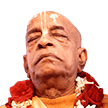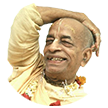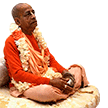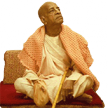Mistakes - an essential subject: Difference between revisions
(Created page with "Category:Essential Subjects <!----------------------- edit below this line -----------------------> <!------------------------ begin introduction text below --------------...") |
(Vanibot #0041: Moves Choose Another box to the end) |
||
| Line 2: | Line 2: | ||
<!----------------------- edit below this line -----------------------> | <!----------------------- edit below this line -----------------------> | ||
<!------------------------ begin introduction text below ------------------------> | <!------------------------ begin introduction text below ------------------------> | ||
One scientist proposes, theorizes something today and another scientist makes this proposition, this theory, null and void and he speaks something else. That is also due to the imperfect of senses. So that is called mistake or illusion. Mistake means calculation, mathematical calculation. Two plus two equal to four, but sometimes by mistake we may put three or five. That is called mistake. And illusion, to accept something for something. Just like we are accepting. These scriptures are free from the four human frailties, that is, illusion, mistakes, limited senses, and the cheating propensity. | |||
Srila Prabhupada's books, lectures, conversations and letters offer a comprehensive presentation of this essential subject as seen in the Vaniquotes '''[[Vaniquotes:Category: | Srila Prabhupada's books, lectures, conversations and letters offer a comprehensive presentation of this essential subject as seen in the Vaniquotes '''[[Vaniquotes:Category:Mistakes|Mistakes]]''' category. An introduction from his teachings is given below in the following 8 quotes. | ||
<!-------- end introduction text and don't touch next three lines ---------> | <!-------- end introduction text and don't touch next three lines ---------> | ||
---- | ---- | ||
== Quotes from Srila Prabhupada's | == Quotes from Srila Prabhupada's teachings == | ||
<!----------------- edit quote boxes below this line -----------------> | <!----------------- edit quote boxes below this line -----------------> | ||
{{VaniQuotebox| | {{VaniQuotebox|According to the Skanda and Vayu Puranas, the word sutra refers to a condensed work which carries meaning and import of immeasurable strength without mistake or fault. The word vedanta means "the end of Vedic knowledge"|According to the Skanda and Vāyu Purāṇas, the word sūtra refers to a condensed work which carries meaning and import of immeasurable strength without mistake or fault. The word vedānta means "the end of Vedic knowledge." In other words, any book which deals with the subject matter indicated by all the Vedas is called Vedānta. For example, Bhagavad-gītā is Vedānta because in Bhagavad-gītā the Lord says that the ultimate goal of all Vedic research is Kṛṣṇa. '''(Teachings of Lord Caitanya, Chapter 19)'''}} | ||
{{VaniQuotebox| | {{VaniQuotebox|Although Sri Caitanya Mahaprabhu was living in Vrndavana, the inhabitants considered Him an ordinary human being, and they mistook the fisherman to be Krsna. Every human being is prone to make such mistakes| Although Śrī Caitanya Mahāprabhu was living in Vṛndāvana, the inhabitants considered Him an ordinary human being, and they mistook the fisherman to be Kṛṣṇa. Every human being is prone to make such mistakes. Śrī Caitanya Mahāprabhu was mistaken for an ordinary sannyāsī, the fisherman was mistaken for Kṛṣṇa, and the torchlight was mistaken for bright jewels on Kālīya's hoods. '''(Caitanya-caritāmṛta, Madhya-līlā 18.108)'''}} | ||
{{VaniQuotebox| | {{VaniQuotebox|At Kaliya Lake, many people mistook a fisherman for Krsna. When some respectable people came to see Sri Caitanya Mahaprabhu, they expressed their opinion that when one takes sannyasa, he becomes Narayana. Their mistake was corrected by the Lord|At Kālīya Lake, many people mistook a fisherman for Kṛṣṇa. When some respectable people came to see Śrī Caitanya Mahāprabhu, they expressed their opinion that when one takes sannyāsa, he becomes Nārāyaṇa. Their mistake was corrected by the Lord. In this way, their Kṛṣṇa consciousness was awakened, and they could understand that a sannyāsī is simply a living entity and not the Supreme Personality of Godhead. '''(Caitanya-caritāmṛta, Madhya-līlā 18 Summary)'''}} | ||
{{VaniQuotebox| | {{VaniQuotebox|Becoming a devotee of the Lord to serve material purposes is a great mistake|Becoming a devotee of the Lord to serve material purposes is a great mistake. Many people become showbottle devotees for material profits. Indeed, materialistic persons sometimes take to professional devotional service and keep Viṣṇu, the Supreme Personality of Godhead, as a means of livelihood. None of this, however, is approved. In the book known as Sapta-śatī, as mentioned by Śrīla Bhaktisiddhānta Sarasvatī Ṭhākura, one can discover how a person worshiping the goddess Durgā begs her for different varieties of material profit. '''(Caitanya-caritāmṛta, Antya-līlā 9.68)'''}} | ||
{{VaniQuotebox| | {{VaniQuotebox|Brahman, every one of us, we are Brahman. There is no doubt about it. But unfortunately, by mistake, by illusion, I am thinking, "I am this body." So spiritual education means first of all one has to understand that aham brahmasmi|In the Vedas there is no such thing as ahaṁ paraṁ brahmāsmi. No. They are misusing. The... Instead of understanding... Brahman, every one of us, we are Brahman. There is no doubt about it. But unfortunately, by mistake, by illusion, I am thinking, "I am this body." So spiritual education means first of all one has to understand that ahaṁ brahmāsmi: "I am Brahman. I am not this body." That is the beginning of spiritual education. '''(Caitanya-caritāmṛta Lecture, 15 July 1976, New York)'''}} | ||
{{VaniQuotebox| | {{VaniQuotebox|For ordinary poison there is treatment - one can be relieved from its effects - but if one drinks the poison of taking a brahmana's property, there is no remedy for the mistake. The perfect example is King Nrga|For ordinary poison there is treatment—one can be relieved from its effects—but if one drinks the poison of taking a brāhmaṇa's property, there is no remedy for the mistake. The perfect example is King Nṛga. He was very powerful and very pious, but due to the small mistake of unknowingly usurping a brāhmaṇa's cow, he was condemned to the abominable life of a lizard. Ordinary poison affects only those who drink it, and ordinary fire can be extinguished simply by pouring water on it, but the araṇi fire ignited by the spiritual potency of a brāhmaṇa who is dissatisfied can burn to ashes the whole family of a person who provokes such a brāhmaṇa. '''(Kṛṣṇa Book, Chapter 64)'''}} | ||
{{VaniQuotebox| | {{VaniQuotebox|Formerly, although the kings were autocrats, they strictly followed the principles laid down by great sages and saintly persons. There were no mistakes in ruling over the country, and everything went perfectly| Formerly, although the kings were autocrats, they strictly followed the principles laid down by great sages and saintly persons. There were no mistakes in ruling over the country, and everything went perfectly. The citizens were completely pious, the king levied taxes legitimately, and therefore the situation was very happy. At the present moment the so-called executive heads are more or less selected from materially ambitious persons who simply look after their own personal interests; they have no knowledge of the śāstras. '''(Śrīmad-Bhāgavatam 4.15.20)'''}} | ||
{{VaniQuotebox| | {{VaniQuotebox|Generally the devotees of the Lord never commit sinful activities, but even if by mistake or because of bewilderment or illusion they sometimes commit sinful acts, they are protected from sinful reactions because they always chant the Hare Krsna mantra|Considering all these points, therefore, intelligent men decide to solve all problems by adopting the devotional service of chanting the holy name of the Lord, who is situated in everyone's heart and who is a mine of all auspicious qualities. Such persons are not within my jurisdiction for punishment. Generally they never commit sinful activities, but even if by mistake or because of bewilderment or illusion they sometimes commit sinful acts, they are protected from sinful reactions because they always chant the Hare Kṛṣṇa mantra. '''(Śrīmad-Bhāgavatam 6.3.26)'''}} | ||
<!----------------- edit quote boxes above this line -----------------> | <!----------------- edit quote boxes above this line -----------------> | ||
| Line 31: | Line 31: | ||
'''Mistakes - [[Vaniquotes:Category:Mistake|explore more within this category]]'''. | '''Mistakes - [[Vaniquotes:Category:Mistake|explore more within this category]]'''. | ||
{{EsentialSubjectTotal}} | {{EsentialSubjectTotal}} | ||
<div style="float:left;"> | |||
{{EssentialSubjectnav}} | |||
</div> | |||
__NOTOC__ | __NOTOC__ | ||
__NOEDITSECTION__ | __NOEDITSECTION__ | ||
Latest revision as of 16:57, 22 November 2020
One scientist proposes, theorizes something today and another scientist makes this proposition, this theory, null and void and he speaks something else. That is also due to the imperfect of senses. So that is called mistake or illusion. Mistake means calculation, mathematical calculation. Two plus two equal to four, but sometimes by mistake we may put three or five. That is called mistake. And illusion, to accept something for something. Just like we are accepting. These scriptures are free from the four human frailties, that is, illusion, mistakes, limited senses, and the cheating propensity.
Srila Prabhupada's books, lectures, conversations and letters offer a comprehensive presentation of this essential subject as seen in the Vaniquotes Mistakes category. An introduction from his teachings is given below in the following 8 quotes.
Quotes from Srila Prabhupada's teachings
Mistakes - explore more within this category.
Vanipedia has now over 903 introductory articles compiled from Srila Prabhupada's books under the series titled Essential Subjects. All these articles can be seen in the Table of Content on the right side of this article and also here in this Umbrella Category. Browse through them to relish the breadth and depth of Srila Prabhupada's teachings - There is a subject for everyone.







